Berlin embassy spy formerly worked as ‘junior RAF airman’
Ministers under pressure to explain how private contractor was given security job
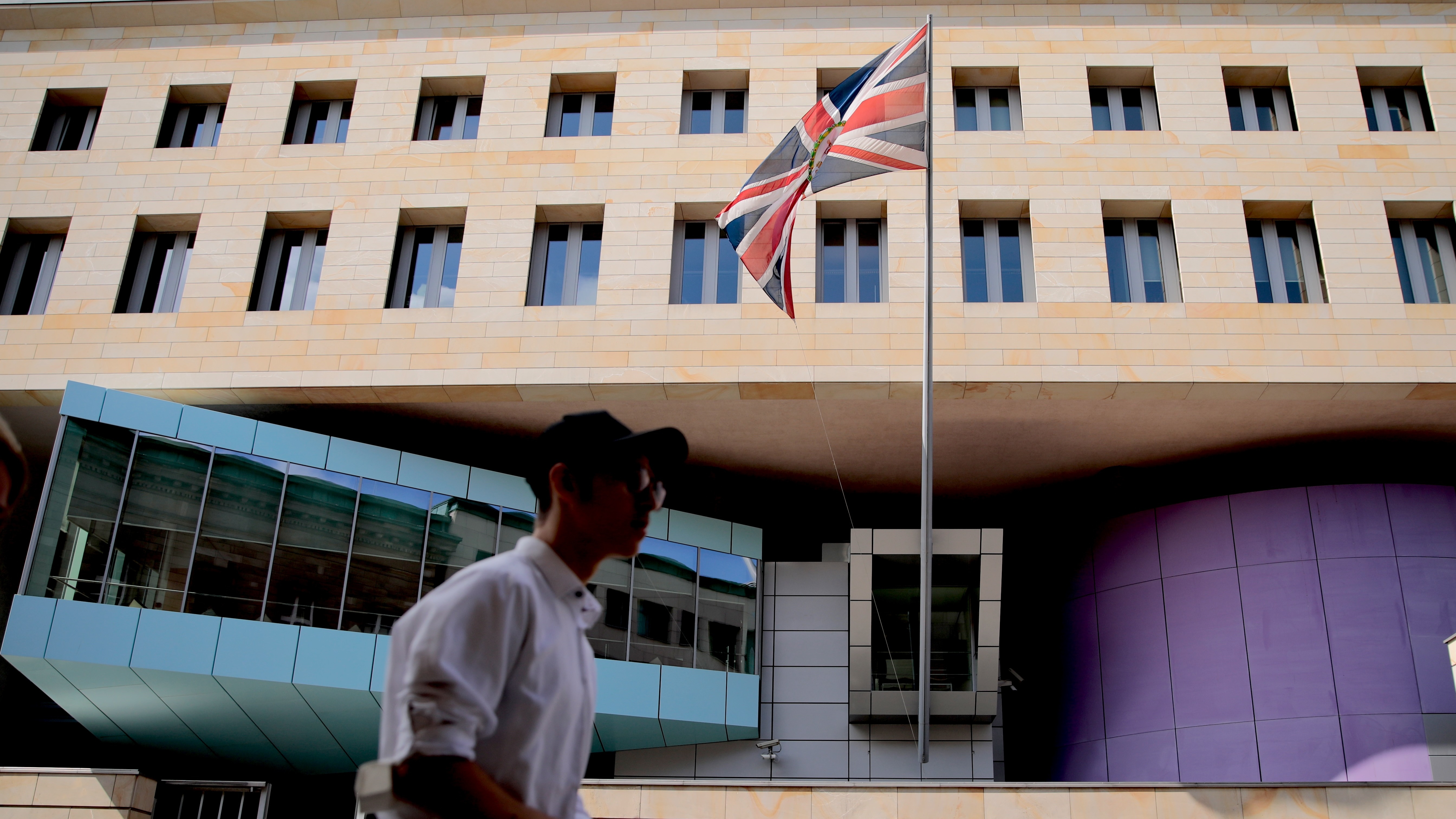
A free daily email with the biggest news stories of the day – and the best features from TheWeek.com
You are now subscribed
Your newsletter sign-up was successful
The British man arrested in Berlin on suspicion of selling sensitive documents to Russia relating to counterterrorism operations is a former RAF airman.
German federal prosecutors said the man, David Smith, worked at the British embassy in Berlin and passed information to Russian intelligence “at least once” in exchange for an “unknown amount” of money.
The German Foreign Ministry has said it is taking the case “very seriously”, while Foreign Minister Heiko Maas added: “Spying on a close ally on German soil is absolutely unacceptable and we are in full solidarity with our British friends.”
The Week
Escape your echo chamber. Get the facts behind the news, plus analysis from multiple perspectives.

Sign up for The Week's Free Newsletters
From our morning news briefing to a weekly Good News Newsletter, get the best of The Week delivered directly to your inbox.
From our morning news briefing to a weekly Good News Newsletter, get the best of The Week delivered directly to your inbox.
‘Not exactly James Bond’
Following his arrest in Potsdam, a city near Berlin, on Tuesday, Smith’s home and workplace were searched as part of an effort to understand the extent of his illegal activities.
According to The Guardian, his detention followed “a joint investigation by German and British authorities”, with The Telegraph adding that Smith is understood to have been watched by MI5 and German intelligence services “for months as he allegedly passed sensitive counter-terror documents to his Russian handlers in exchange for cash bribes”.
He was arrested “on suspicion of committing offences relating to being engaged in ‘intelligence agent activity’ (under German law)”, a spokesperson for the Metropolitan Police said, adding that “primacy for the investigation remains with German authorities. Officers from the counter-terrorism command continue to liaise with German counterparts as the investigation continues”.
A free daily email with the biggest news stories of the day – and the best features from TheWeek.com
A defence source told The Telegraph that Smith is a former “former junior airman with the RAF”, but that he stopped working for the armed forces “some time ago”. Whitehall sources added that he was “hired locally by a private contractor providing security for the British Embassy, and does not hold diplomatic immunity”.
Whitehall officials also said that he is suspected to have “offered the Russians a list of persons entering and exiting the embassy”, information that the paper says “is thought to have been low risk because British agents use aliases when signing in to embassies”.
“Unlike the US, which posts marines to guard its embassies, Britain only uses military personnel in the riskiest locations,” the paper adds. “All personnel who work at British embassies are subject to security vetting.”
Neighbours of the suspected mole told German tabloid Bild that he is “no James Bond”, describing him as “a bald, stocky man of about 5ft 7 who left home early and returned late each day”. His neighbours also told the paper that he drives a Ford Fiesta which was searched by police and that he lived in an apartment with a woman for some years, but that “they had not seen her recently”.
Suggestions have also been raised that Smith harboured “extreme right-wing views”, The Sun reports, raising the possibility that “he may have been blackmailed by Russia”.
Visible in his apartment was a “full size Russian flag hanging in the corner of the living room, along with stuffed animals wearing Russian military hats”, the paper adds. He also owns “books about the Nazis, World War 2 and the Soviet Union - along with a spy novel by John le Carre and books by infamous conspiracy theorist David Icke”.
Among the books were A Murder of Quality by le Carre, as well as a book by Ike “which claims 9/11 is an inside job, history texts about Hitler’s secret police the SS, and various books about Stalin’s Red Army and the Soviets in WW2”.
Other items spotted in his flat include scribbled notes on a desk that appear to be relevant to the ongoing investigation. One of them read “Berlin police have four numbers”, while another said: “Docs for meeting at the weekend.” He also had objects linked to Moscow-backed separatists currently operating in Ukraine.
Ministers are under pressure to explain how Smith was able to secure a job at the British Embassy. Iain Duncan Smith, the former Tory leader, said: “There are clearly questions to be asked over whether the early vetting turned up anything and if not, why not. The vetting is clearly not up to scratch.”
‘Tactics or incompetence?’
Arrests of suspected Russian intelligence assets are rare, with the last detention taking place in 2010 when Anna Chapman, a Russian-born intelligence agent who gained UK citizenship by marriage, was arrested in the United States for espionage and deported.
However, the decade since has seen tensions rise between Russia and the western powers following the Sailsbury nerve agent attack, the murder of a string of Russian dissidents across Europe and alleged election interference in the US.
“There are a number of reasons why British officials may choose not to make arrests and expose spying activity,” says The Times’ security editor Fiona Hamilton, namely that it can be useful to allow spies to become an “unwitting intelligence asset” by “feeding back nefarious information to the Russians that can help, rather than hinder, British causes”.
The security services may also “consider it is more diplomatically appropriate to make an asset or foreign intelligence officer aware that their cover is blown”, she adds, suggesting that this arrest is either the product of “tactics or incompetence”.
BBC security correspondent Gordon Corera suggests that while “intelligence gathering has changed” since the Cold War, “the old ways have not disappeared”.
“Spy services still seek out people whom they can recruit to pass on sensitive information and that makes embassies a prime target”, he explains, with local staff possibly proving useful because they can “be targeted with cash or other inducements” and “provide access to rooms to plant listening devices or gather information”.
Just weeks after a private contractor working for the Department of Health passed CCTV footage of Matt Hancock’s affair to The Sun, the arrest of Smith has “raised serious questions over security vetting for private contractors in British embassies”, The Telegraph says.
Tobias Ellwood, the Tory chair of the Commons defence select committee, has called for a review of all contractors working in embassies, adding that it is “standard protocol” following an incident that he described as a “disturbing throwback to the Cold War days”.
Chris Bryant, Labour chair of the all-party parliamentary Russia group, said the arrest may be “one of the most serious security breaches at a UK embassy for many years”, adding that the “government must review the security of all contractors at UK embassies as a matter of urgency”.
-
 Nordic combined: the Winter Olympics sport that bars women
Nordic combined: the Winter Olympics sport that bars womenIn The Spotlight Female athletes excluded from participation in demanding double-discipline events at Milano-Cortina
-
 Samurai: a ‘blockbuster’ display of Japanese heritage
Samurai: a ‘blockbuster’ display of Japanese heritageThe Week Recommends British Museum show offers a ‘scintillating journey’ through ‘a world of gore, power and artistic beauty’
-
 BMW iX3: a ‘revolution’ for the German car brand
BMW iX3: a ‘revolution’ for the German car brandThe Week Recommends The electric SUV promises a ‘great balance between ride comfort and driving fun’
-
 Blaise Metreweli: the first female head of MI6
Blaise Metreweli: the first female head of MI6In the Spotlight The intelligence service's current technology boss – known as 'Q' – has been revealed as the new chief, or 'C'
-
 The secret lives of Russian saboteurs
The secret lives of Russian saboteursUnder The Radar Moscow is recruiting criminal agents to sow chaos and fear among its enemies
-
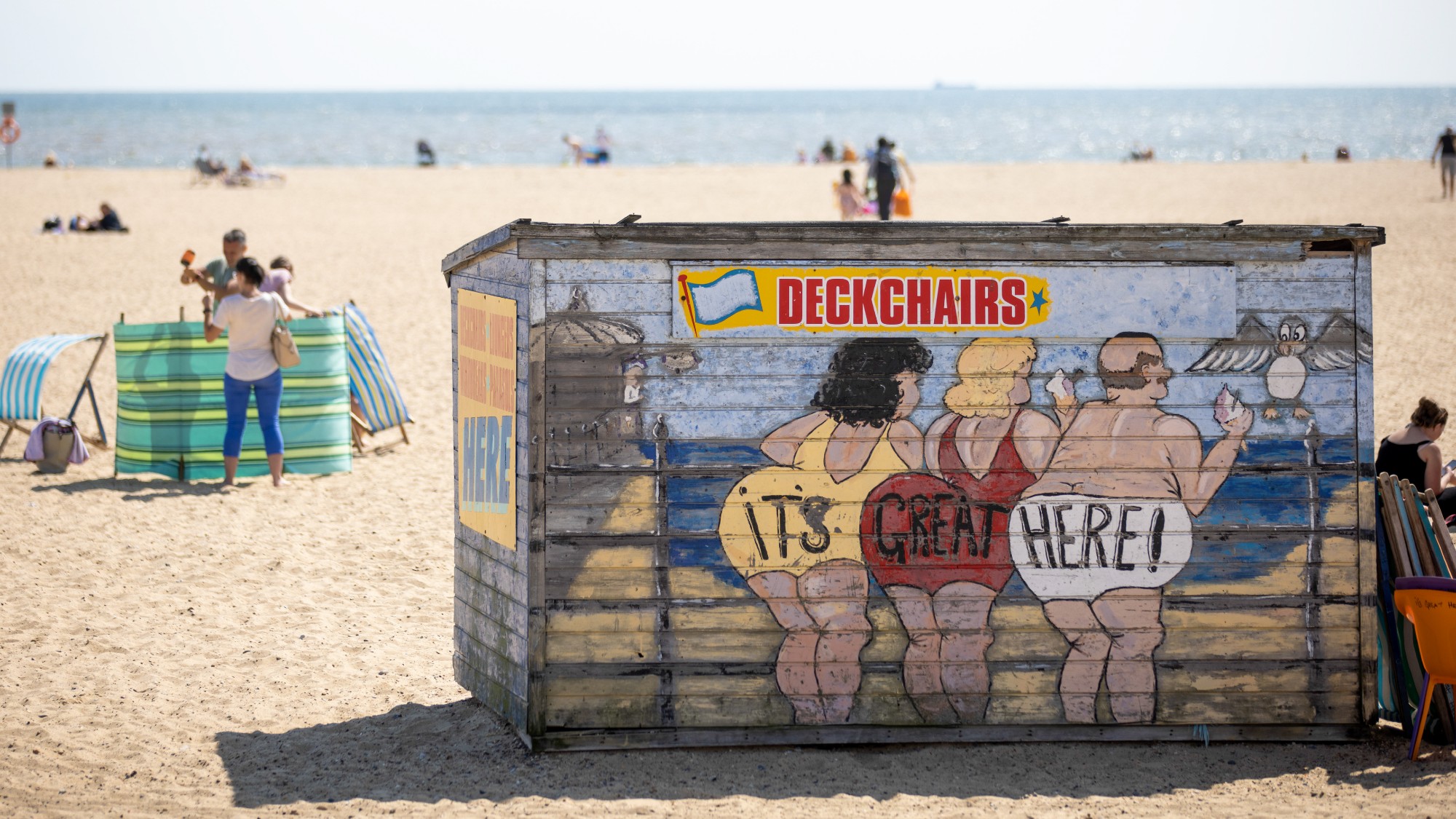 Russia's spies: skulduggery in Great Yarmouth
Russia's spies: skulduggery in Great YarmouthIn the Spotlight 'Amateurish' spy ring in Norfolk seaside town exposes the decline of Russian intelligence
-
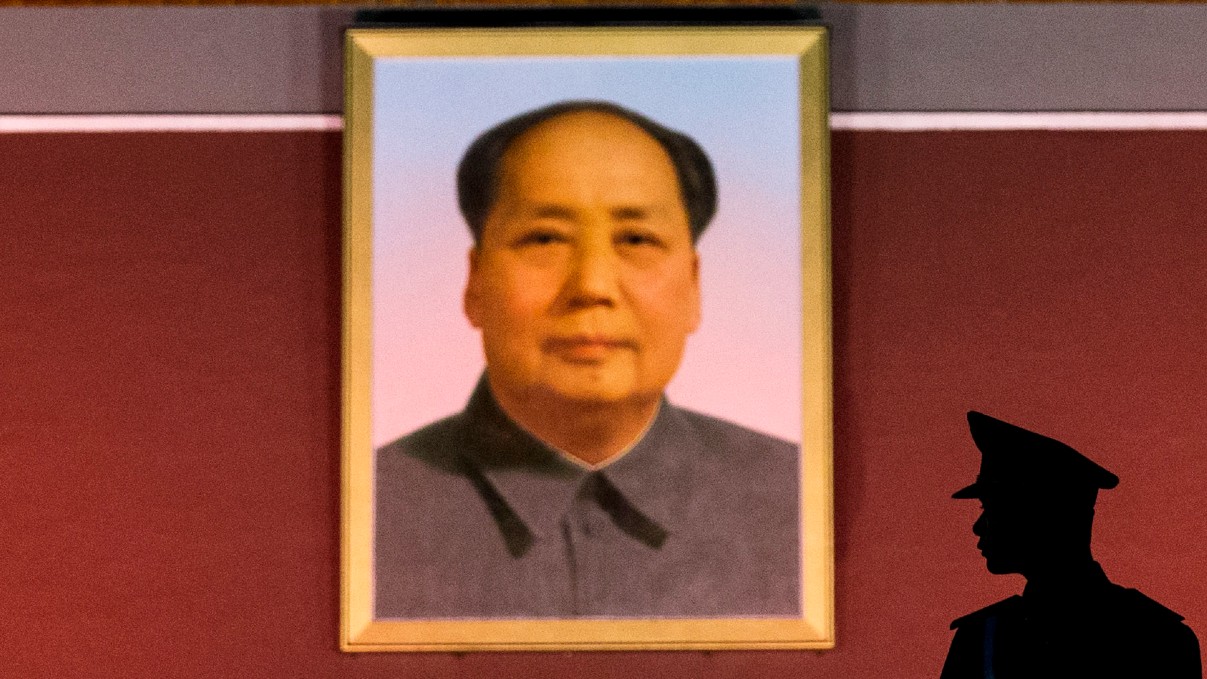 China's vast intelligence network
China's vast intelligence networkThe Explainer Cyber capabilities and old-fashioned human intelligence operate in 'fundamentally different way from those in the West—in nature, scope, and scale'
-
 Why is Islamic State targeting Russia?
Why is Islamic State targeting Russia?Today's Big Question Islamist terror group's attack on 'soft target' in Moscow was driven in part by 'opportunity and personnel'
-
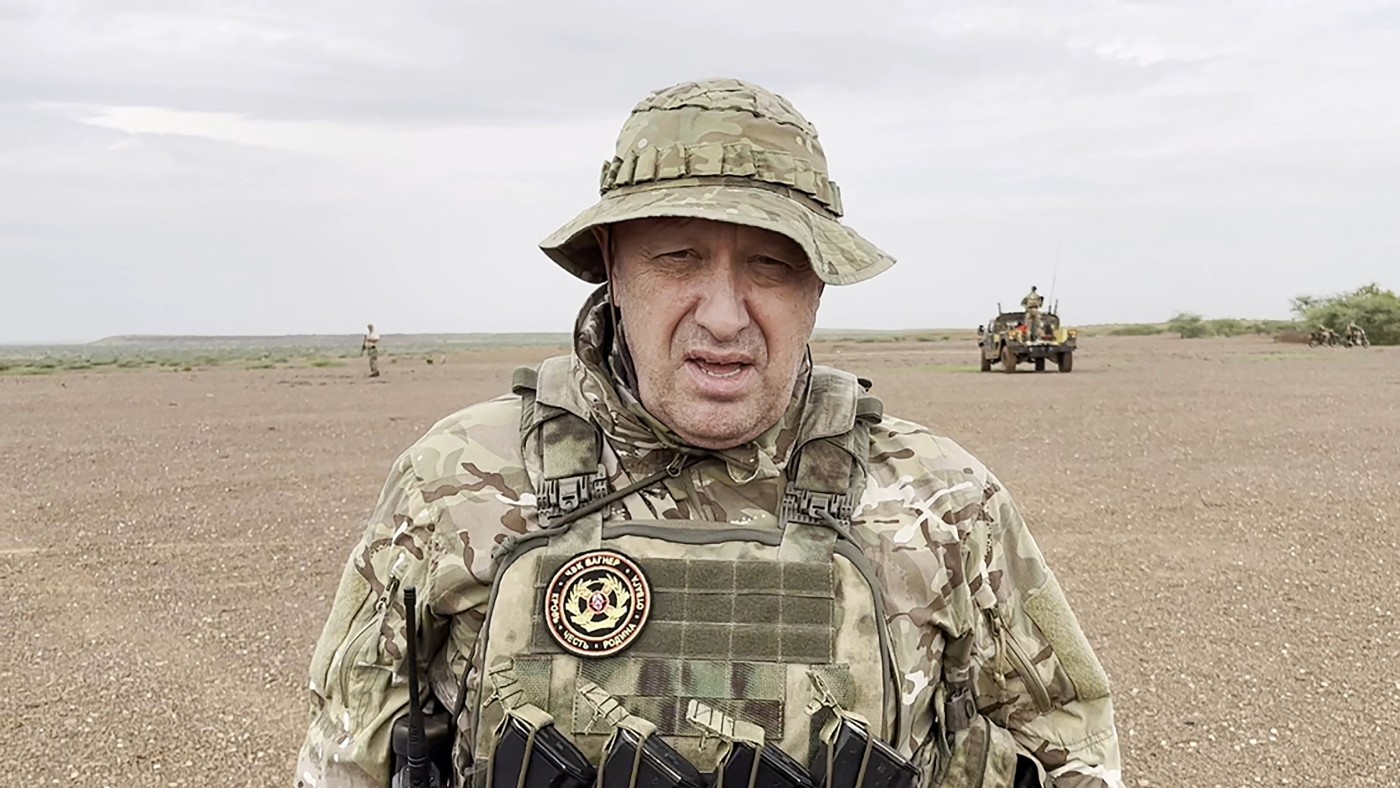 Yevgeny Prigozhin: will ‘predictable’ death of Wagner chief backfire on Putin?
Yevgeny Prigozhin: will ‘predictable’ death of Wagner chief backfire on Putin?Today's Big Question Analysts say Russian president faces growing danger from advisers and risk of revenge from Wagner fighters
-
 Bulgarian trio accused of running ‘Russian spy ring’ from Great Yarmouth
Bulgarian trio accused of running ‘Russian spy ring’ from Great YarmouthSpeed Read The suspects had passports, residency permits and identity cards from multiple European countries
-
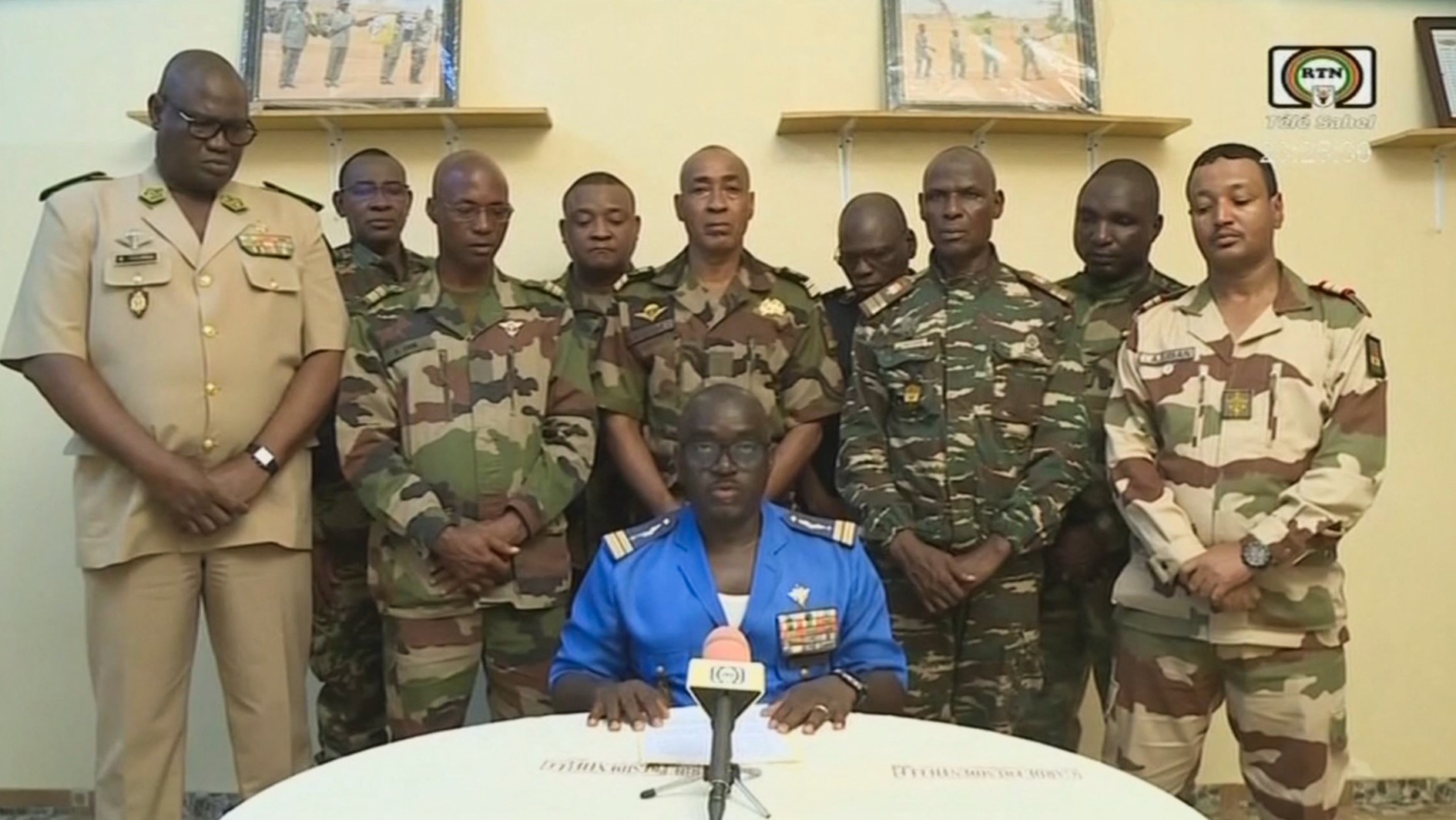 What role is Russia playing in the Niger coup?
What role is Russia playing in the Niger coup?Today's Big Question Vladimir Putin will ‘welcome’ chance to expand influence in region, despite no indication he was behind military takeover